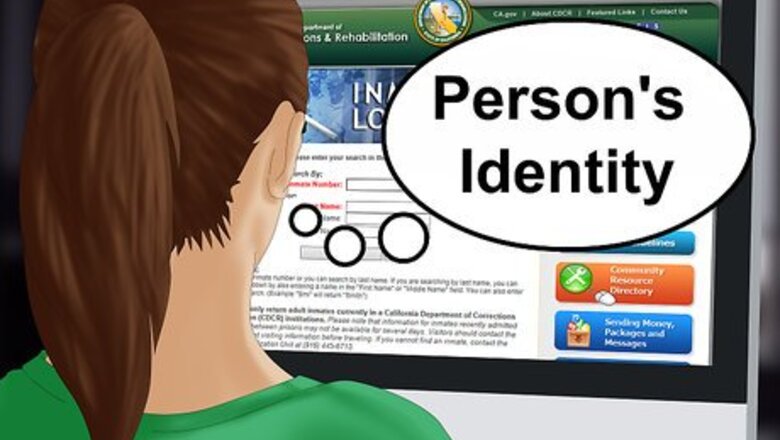
views
Contacting the Parole Officer Directly

Confirm the person's identity. You won't be able to find the right person unless you know his full legal name. Although most criminal records include listings of aliases or other known names, the records may only be searchable using legal names.
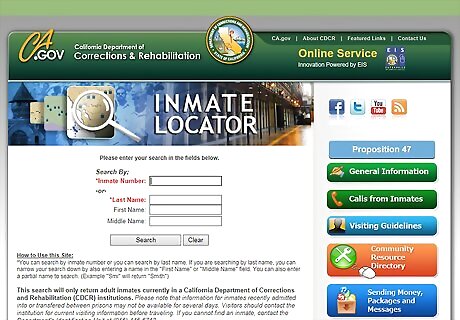
Search the state's inmate database. Each state has a database that lists all individuals currently housed in correctional facilities. Since anyone on parole has already served time in prison, he would be listed in the state's inmate database. If the person you're looking for has been released on parole, his listing in the inmate database would give you a clues to where he had been released. Inmate locators typically are designed to enable you to learn where a particular inmate is housed while he is incarcerated, and as such, information about someone out on parole may be limited. Since federal parole has all but been eliminated, if you're looking for someone on parole, chances are he was convicted of a crime under state law.

Contact the parole office where the person is required to report. If you know where the person was released, you know what county he lives in. The American Probation and Parole Association has a directory that lists the probation and parole department for each state, along with websites and contact information. Parole offices supervise offenders released from prison. Parolees are required to report to their parole officer on a regular basis during the period of supervised release. People on parole cannot easily move to different counties while they remain on parole, so chances are if he was released in one county he still lives in that county. If you find the parole office, you can find the officer he initially reported to or still reports to. The officer will have more information about the whereabouts of the person you're trying to find.

Talk to the person's parole officer. Although standards differ among states and counties, the person's parole officer should be able to assist you in finding the person you're searching for. Parolees have an obligation to keep their parole officers informed of where they live and work, so the parole officer will have the most up-to-date information about the location of the person you're looking for.
Using Other Online Resources
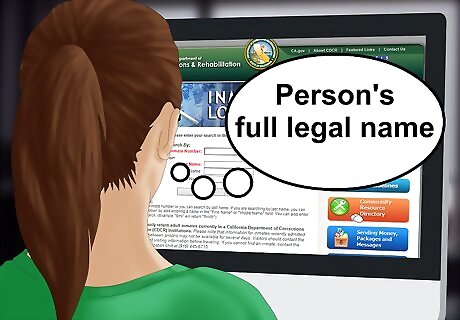
Search using the person's full legal name. If you're going to search records and databases online, you'll get a lot further if you know the person's legal name rather than an alias.

Check criminal databases. Criminal records are open to the public, so you should be able to find information about the person's status, possibly including parole records, by searching public records online. Keep in mind you may be charged a fee to conduct full searches of criminal records. The National Center for State Courts can help you find online records of the state court where the individual was convicted. Although court records may not have accurate current contact information for the person you're trying to find, they may include information for a friend or family member who would know the person's whereabouts.
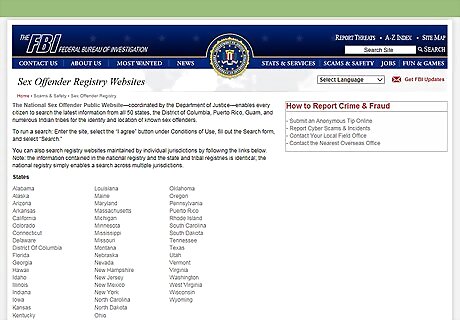
Search the sex offender registry. If the person was convicted of a crime that required him to register as a sex offender, he also must report his address to the sex offender registry in your state. Every state has a sex offender registry that includes the current residence of every person who is required to be registered. This information typically can be found online in a searchable database.
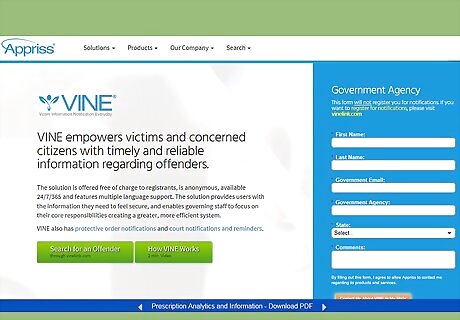
Register with VINELink. Go to https://vinelink.com/vinelink/initMap.do and follow the instructions to register with the online version of the National Victim Notification Network. Once you set up a user account on VINELink, you will receive a notification either by phone, email, or text message when the custody status of any offender you've listed changes.

Contact your state's office for crime victim services. Most states have a dedicated office to provide crime victims with resources and assistance, including help and support after the offender is out on parole. In addition to VINE, many states have their own victim notification network that can help protect you by notifying you when the offender's status changes. If the offender attempts to contact you while on parole or otherwise harasses or frightens you, victim services can assist you in filing for an order of protection to keep him away from you.

Talk to other people. If you know anyone who knows the person on parole, such as friends or family members, you might consider calling them to find out if they've heard from the person or know where he is. If you don't want the person to know that you're looking for him for whatever reason, reaching out to friends or family might not be a good idea as he might find out.




















Comments
0 comment